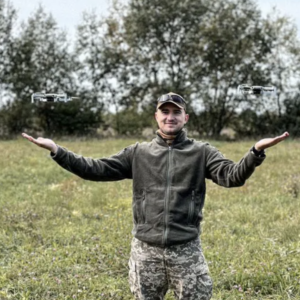Ivan Pavlish will use drones both on the battlefield and while working on the land. He is a veteran and recently won the #VARTO contest
Ivan will receive funding for his own business – agricultural drones. Before the ATO, the veteran worked as a judge’s assistant. He planned to continue working in law. But after demobilization, he began to grow soybeans and wheat, so Ivan became a farmer.
“I was inspired by the idea of starting my own business. I saw trends and realized that agriculture is a promising industry, especially in Ukraine. Besides, I have a friend who is engaged in farming. He has his own land plot and the equipment,” says the veteran.
Ivan knows how to properly organize the process, he has the necessary project management skills. After his participation in the ATO, he obtained an economic education and graduated from the Norwegian University with a specialization in “Project Management”.
Ivan also took part in a special course for veterans that was held at the Kyiv School of Economics.
“Many people think that a farmer is someone who always has his hands up to their elbows in mud or turning nuts on a tractor. But modern farming is the same business as any other, the same algorithms operate there,” Ivan explains.
The veteran tried to grow sweet potatoes and planned to reach a commercial level of production. However, on February 25, he was already in the military unit. “During the second mobilization, I was partly involved in aerial reconnaissance and work with drones. At the courses, I met a guy who, in addition to having experience in aerial reconnaissance, was also involved in agricultural drones. I became highly interested in it,” that’s how the idea arose, It was financially supported by the Ukrainian Veterans Foundation.
No crop can be grown without spraying. Plants need fertilizers, protection from pests and proper treatment.
Ivan Pavlish describes such advantages of agrodrones:
- They can work in hard-to-reach areas
- They accurately apply plant protection products
- They help to decrease water consumption
- They do not leave tracks, etc.
“You make a map of the field, and the drone automatically calculates its routes, calculates how much time it needs, and returns itself to refuel or replace the battery. The most autonomous thing, which greatly facilitates the work of the farmer,” the veteran shares his experience.
Ivan plans to spend the funds from the UVF on drones, additional equipment for them, as well as for the training of two more operators.
“According to the terms of the project, I have to hire two more workers. I plan to hire veterans with relevant experience. If they have combat experience, they can definitely handle agrodrones. But It is necessary to pay for the appropriate courses for them. I will also be able to make good money if I provide services to neighbouring farms. They are already interested. I hope that I will be able to organize everything,” concludes the veteran entrepreneur.
Ivan will transfer 5% of his own profit to a charity fund that organizes training for combat drone pilots.


